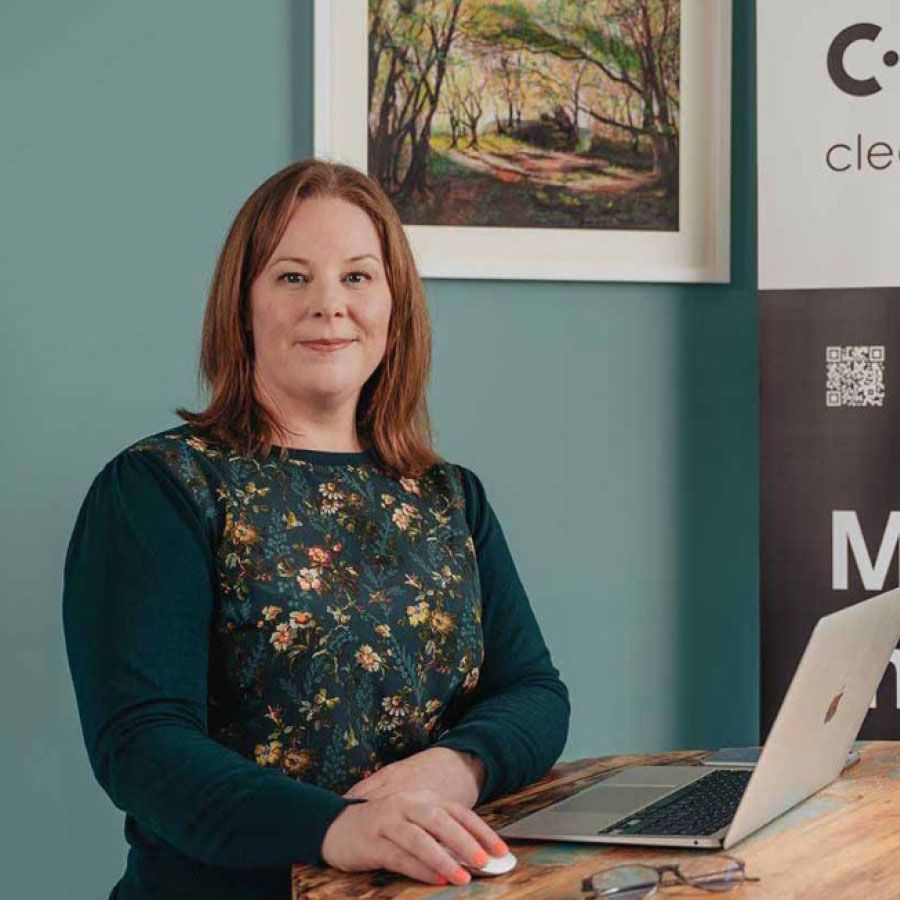Clodagh Monks FCCA.
Using AI to create a better workplace
Ireland


Artificial intelligence (AI) might be one the hottest topics on the planet, but it’s business as usual for Clodagh Monks FCCA.
Ireland-based Monks is co-founder and CFO of Clearword, a real-time AI meeting assistant that creates summary notes of video calls and prepares follow-up actions, such as call summary emails.
Clearword was founded with a simple objective: to make meetings better for everyone. ‘We thought the world of meetings and online meetings was broken,’ Monks explains. ‘So, we wanted to create better work and meeting processes for users, to give them back their time.’
While the risks associated with AI are widely discussed, it is also important to focus on the opportunities, with Clearword being a good example of how AI technologies can change the world for the better.
AI adoption is set to positively impact society in many ways, from improving cancer detection through to tackling the problem of plastic waste in our oceans. ‘Even though we can be sceptical of AI, we can’t ignore the benefits and the greater good it can do,’ says Monks.
Accountants can help the world to capitalise on these benefits by getting involved with the strategic planning of AI projects.
For example, they might be able to review workflows to identify how they can be improved or provide financial oversight to ensure that budgets are effectively allocated and deployed. Additionally, accountants can help to establish key performance indicators (KPIs) for AI projects and measure the results of those projects against their KPIs. ‘Always have an eye on risks,’ Monks adds. ‘Because when it comes to AI, or the implementation of any other new tool, there are always going to be risks.’
Another area where accountants can support with AI deployment is by ensuring that new tools and systems are used in ethical, responsible ways. They can check that the organisation has ethical guidelines in place, as well as appropriate controls. They can also establish how the organisation plans to monitor the performance of its AI systems on an ongoing basis.
AI will have a transformational impact on the finance function going forward, enabling accountants to work more efficiently and deliver greater insights to their organisations. Already they can deploy AI tools to automate routine tasks, such as invoice entry and payment reconciliation. Increasingly, they will also use AI to undertake predictive modelling and analysis that informs decision-making. Meanwhile, real-time reporting enabled by AI will potentially bring huge time savings to accountants in future.
While AI will help to reduce accountants’ workloads in many ways, it will also present them with new opportunities. ‘Someone will need to have oversight for the use of AI within a company,’ says Monks. ‘And what better person than the accountant? Because of our integrity, and all the values we stand for, I think accountants will be used to oversee AI systems within companies.’
Monks’ advice for accountants who want to explore the potential of AI is to educate themselves on the technologies by reading articles, signing up for email newsletters, attending webinars and experimenting with AI tools. ‘Talk to your team and other people within the company about how they’re using AI,’ she suggests. ‘Just keep up to date with what’s going on around you and play with it.’
What Monks enjoys about working in AI are the sheer possibilities of the space. She says: ‘It’s just blown wide open the potential of what can be achieved.’